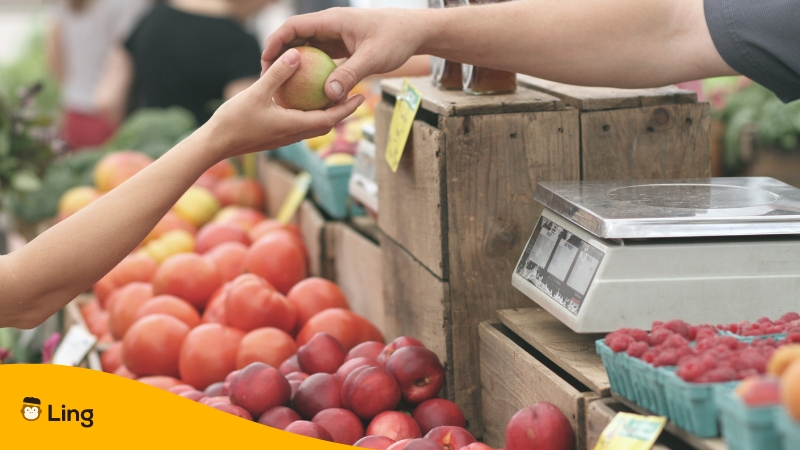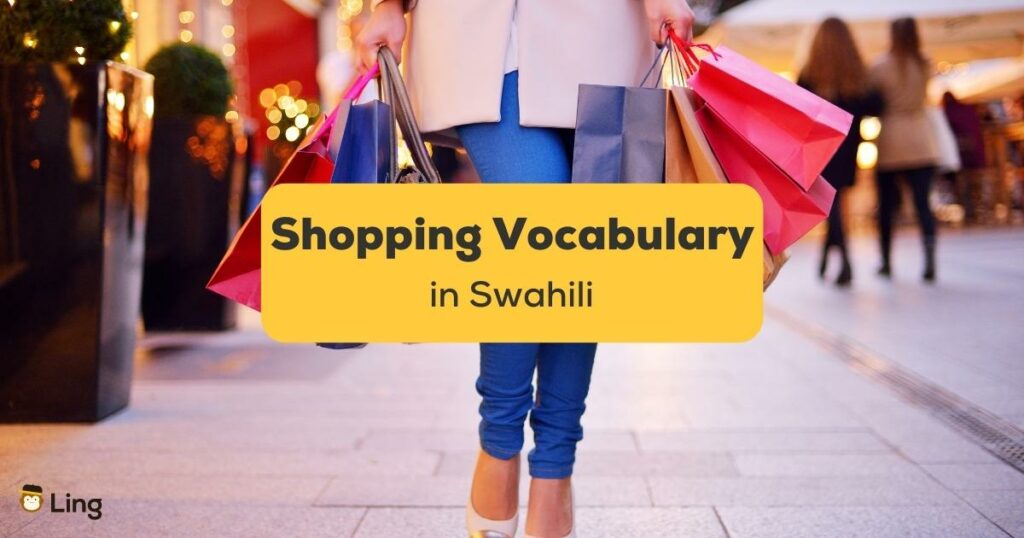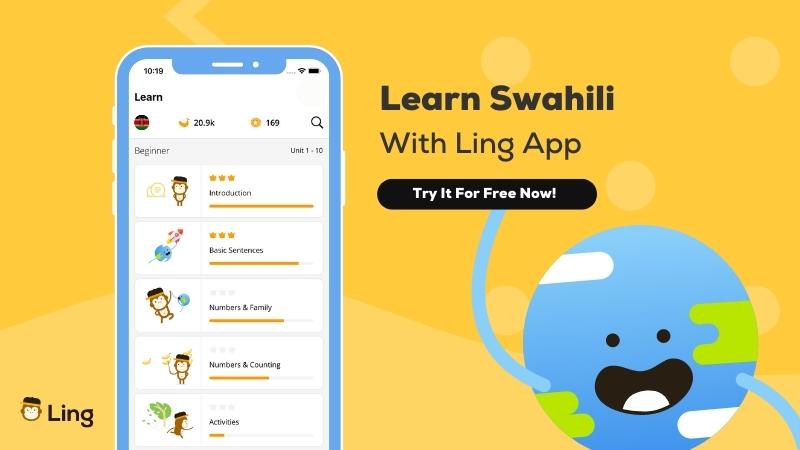In Kenya and other Swahili-speaking countries, knowing the Swahili language when shopping is essential! Most African countries depend heavily on their local language for business transactions and daily activities, and Kenya is no exception. A typical Kenyan market is extremely busy with buyers and sellers trying to negotiate satisfactorily, and these negotiations are usually in the Swahili language. In fact, the more you know some shopping vocabulary in Swahili, the higher your chance of getting a fair price and a good quality of goods.
However, knowing a lot of Swahili isn’t required if you go to big shopping malls, but where is the joy if you cannot go to a local market and get unique pieces that’ll remind you of Kenya? Therefore, in this blog post, I will equip you with the necessary shopping phrases to get the best bargain in the Kenyan market. Are you ready to learn the basic vocabulary by heart? Let’s go!

Most Important Shopping Vocabulary In Swahili To Know
While it is true that your fluency in Swahili will make negotiation better in the market, there is always a starting point. Words like cheap and expensive are just some of the most important shopping words that will make the process easier. So, let’s take a look!
How Much Is This? – Hii Ni Pesa Ngapi?
How much is this is arguably the most important word in any local African market? When you get to a Kenyan market, you will see different products assembled in bulk or singly, with no price tag. So, you have to inquire about the price before you can set the ground for negotiation. Now, let’s say you find appealing African clothing you’d like to get, the best phrase to know the cost is to ask, ‘Hii ni pesa ngapi?’ which means how much is this? If you feel it is a considerable price, you can buy it. If not, you should let them know it is expensive.
It Is Expensive – Hiyo Ni Ghali Sana
One rule of Kenyan local markets is always to negotiate. Every seller has a fixed profit for each product but will like to make more profit and will increase the initial price. Most native speakers know this, and you will see them going back and forth with the seller. If you realize that the price of a product is too high, the next thing to do is to let the seller know that their product is expensive by saying, ‘Hiyo ni ghali sana.’ Once you say that, the seller may negotiate prices with you or insist that the product is worth the initial cost.

I Will Like To Buy… – Ningependa Kununua…
If you enter a supermarket or an eatery, it is best to let them know what you want to buy. The best phrase for that is ‘Nigependa Kununua …’. Let’s say you want to buy paracetamol; you will say, ‘Nitapenda kununua paracetamol.’ Never hesitate to let the shop attendant know that you need something or will be standing there for a long time. Also, the sellers will ask, ‘Unataka kununua nini?’ which means, ‘What do you want to buy?’
Do You Accept Credit Cards? – Mnachukua Kadi Za Ukopeshaji?
In a typical local Kenyan market, they don’t accept credit cards. You either come with your cash or use POS for withdrawal. However, you can pay with debit cards for mini shops, shopping malls, and supermarkets. Another thing to note is that credit cards are not common in most African languages. Kenya, Nigeria, Ghana, etc., prefer debit cards to credit cards. So, keep that in mind when you are shopping.
When you want to find out if the shop accepts a debit card, the best phrase is to ask, ‘Mnachukua kadi za ukopeshaji?’ If yes, then you are in luck! However, I strongly advise you to come with physical cash when shopping in local markets.
I Don’t Want It – Sitaki
Most marketers will try to woo you to buy their product if you are shopping in a local market. They can call you nice names and tell you to come over to check what you need. What you can say is Thank you or Sitaki, which means ‘I don’t want.’ Also, when a seller tries to upsell another product after buying something from them, you should politely say Sitaki.

Other Shopping Vocabulary To Keep Close
There are various shopping phrases that you can use in a market. The more phrases you know, the easier it becomes to negotiate with the sellers. Therefore, check out more shopping vocabulary you should know!
Important Shopping Words
You should know words like supermarket, cashier and so on, in case you want to give extra details. Here are some helpful shopping words to know
| English | Swahili | Sound |
| Market | Soko | |
| Expensive | Ghali | |
| Cheap | Rahisi | |
| Cash | Pesa taslimu | |
| Discount | Punguzo | |
| Cashier | Keshia | |
| Shop | Duka | |
| Shopping list | Orodha ya manunuzi |
Final Thoughts!
There you have it! The essential shopping vocabulary to get by in any Kenyan market. Remember, negotiation is critical in any African market. Ensure you try to price down the product before buying. They will charge more if you are a foreigner, which is expected in most countries. However, try to get the best deal for your money.
Suppose you are a Swahili learner or enthusiast who genuinely wants to learn the Swahili language. Then I have something for you!
Learn Swahili With Ling App
Are you wondering about the best resources to learn Swahili? Ling App is here for you!
Ling is a language learning platform where you can learn Swahili and 60+ other languages from the comfort of your home. All you need is to sign up, subscribe and start learning Swahili. It has detailed grammar lessons, quizzes and games for fun, an AI chatbot, speakers’ audio recordings, and much more! So, what are you waiting for? Download the Ling App today on Play Store and App Store!






























































